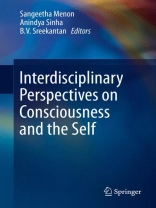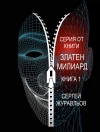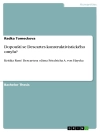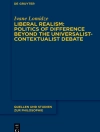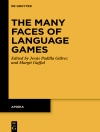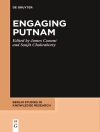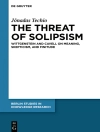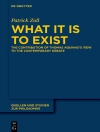This book brings together ancient spiritual wisdom and modern science and philosophy to address age-old questions regarding our existence, free will and the nature of conscious awareness.
Stuart Hameroff MD
Professor, Anesthesiology and Psychology, and Director, Center for Consciousness Studies
The University of Arizona, Tucson, Arizona
This book presents a rich, broad-ranging overview of contemporary research and scholarship into consciousness and the self…. It is … to their credit that the editors have assembled a highly stimulating set of scholars whose expertise cover all the relevant areas. I strongly recommend the book to anyone with an interest in understanding the directions in which contemporary thinking about the nature of consciousness is headed.
B. Les Lancaster
Emeritus Professor of Transpersonal Psychology
Liverpool John Moores University, UK
This volume is a collection of 23 essays that contribute to the emerging discipline of consciousness studies with particular focus on the concept of the self. The essays together argue that to understand consciousness is to understand the self that beholds consciousness. Two broad issues are addressed in the volume: the place of the self in the lives of humans and nonhuman primates; and the interrelations between the self and consciousness, which contribute to the understanding of cognitive functions, awareness, free will, nature of reality, and the complex experiential and behavioural attributes of consciousness. The book presents cutting-edge and original work from well-known authors and scholars of philosophy, psychiatry, behavioural sciences and physics. This is a pioneering attempt to present to the reader multiple ways of conceptualizing and thus understanding the relation between consciousness and self in a nuanced manner.
Table of Content
Chapter 1: Introduction.- Part I: Consciousness, Agency and the Self .- Chapter 2 : Conscious Agency and the Preconscious/Unconscious Self.- Chapter 3: Finding the Self and Losing the Ego in the State of Pure Consciousness.- Chapter 4: Converging on the Self: Western Philosophy, Eastern Meditation, Scientific Research.- Chapter 5: The Self as Organiser.- Chapter 6: Reconceptualizing the Separative Self. Chapter 7: Consciousness, Memory and Dreams in Kashyapa Samhita. Chapter 8: Experientially Acquired Knowledge of the Self in a Nonhuman Primate.- Chapter 9: Executive Functions as a Path to Understanding Nonhuman Con-sciousness: Looking under the Light.- Chapter 10: Self, Identity and Culture.- Part II: Self and First-person Phenomenology .- Chapter 11: Consciousness and First Person Phenomenology: First steps towards an Experiential Phenomenological Writing and Reading (EWR).- Chapter 12: Self and Neurophenomenology: Gift and Responsibility.- Chapter 13: The Inside-Outside Story of Consciousness: A Phenomenological Exploration.- Chapter 14: Self and Empathy.- Chapter 15: Adapted Self in the Context of Disability: An Ecological, Embodied Perspective.- Chapter 16: Self and Transformative Experiences: Three Indian Philosophers on Consciousness.- Part III: Boundaries of the Self and Origins of Consciousness .- Chapter 17: Soul, Neurons, Particles, or Mind-at-Large? Exploring the Boundaries of the Self.- Chapter 18: Is the Source of Awareness Present in the Quantum Vacuum?.- Chapter 19: Cosmological Considerations Relevant to the Origin of Consciousness.- Chapter 20: Reality and Consciousness: Is Quantum Biology the Future of Life Sciences?.- Chapter 21: Human Brain is a Coherent State of the Mind.- Chapter22: Consciousness, Functional Geometry and Internal Representation.- Chapter 23: Consciousness, Libertarian Free Will and Quantum Randomness.
About the author
Sangeetha Menon is a professor at the National Institute of Advanced Studies (NIAS), Bengaluru, India. She is a distinguished member of the International Society for Science and Religion; and Board Member of the International Association for Transpersonal Psychology, and Asia Consciousness Society. She has been a Visiting Professor at the Oxford Centre for Hindu Studies (OCHS), Oxford University, and at the Nanzan Institute of Religion and Culture, Nanzan University, Japan. Professor Menon’s publications include four coedited volumes and two authored volumes. See www.consciousnessshop.com.
Anindya Sinha is a professor at School of Natural Sciences and Engineering, NIAS. His principal contributions have been in understanding the structure and evolution of the primate mind. He discovered a new species of primate, the Arunachal macaque, in northeastern India. Professor Sinha’s wide-ranging research interests are in the areas of behavioural ecology and cognitive psychology of primates, animal molecular genetics, evolutionary biology, conservation biology and the philosophy of biology. He is also interested in biology education and popularisation of science, and has lectured extensively in a variety of educational and research institutions.
B.V. Sreekantan is Visiting Professor at NIAS and also Chairman, Gandhi Centre of Science and Human Values of the Bharatiya Vidya Bhavan, Bengaluru. He was Dr. Radhakrishnan Visiting Professor in 1992, Srinivasa Ramanujan Professor at the Indian National Science Academy (1987-92), and Director of the Tata Institute of Fundamental Research (1975–87). He has received a number of awards, including the R.D. Birla Award of the Indian Physics Association and the Padma Bhushan from the Government of India. Professor Sreekantan’s interests have shifted from pure science to scientific and philosophical studies on consciousness and the exploration of commonalities and similarities in modern science and ancient philosophies.
